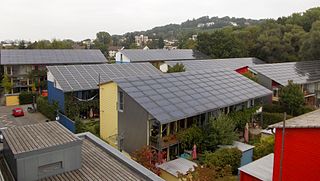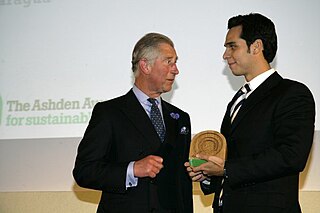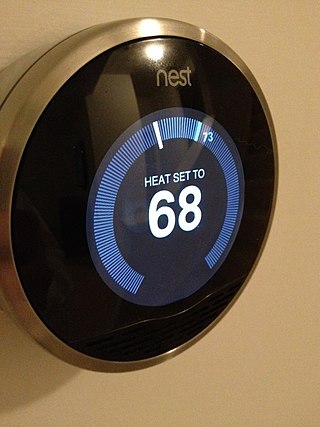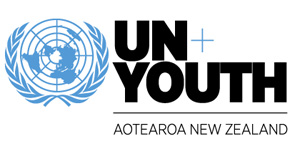Sustainable living describes a lifestyle that attempts to reduce the use of Earth's natural resources by an individual or society. Its practitioners often attempt to reduce their ecological footprint by altering their home designs and methods of transportation, energy consumption and diet. Its proponents aim to conduct their lives in ways that are consistent with sustainability, naturally balanced, and respectful of humanity's symbiotic relationship with the Earth's natural ecology. The practice and general philosophy of ecological living closely follows the overall principles of sustainable development.

An Earthship is a style of architecture developed in the late 20th century to early 21st century by architect Michael Reynolds. Earthships are designed to behave as passive solar earth shelters made of both natural and upcycled materials such as earth-packed tires. Earthships may feature a variety of amenities and aesthetics, and are designed to withstand the extreme temperatures of a desert, managing to stay close to 70 °F (21 °C) regardless of outside weather conditions. Earthship communities were originally built in the desert of northern New Mexico, near the Rio Grande, and the style has spread to small pockets of communities around the globe, in some cases in spite of legal opposition to its construction and adoption.
The Centre for Alternative Technology (CAT) is an eco-centre in Montgomeryshire, Powys, Wales dedicated to demonstrating and teaching sustainable development. CAT, despite its name, no longer concentrates its efforts exclusively on alternative technology, but provides information on all aspects of sustainable living. It is open to visitors, offers postgraduate degrees as well as shorter residential and one day courses; and publishes information on renewable energy, sustainable architecture, organic farming, gardening, and sustainable living. CAT also runs education programmes for schools and sells environmentally friendly items through its on site shop, restaurant and mail order department.

World Water Day is an annual United Nations (UN) observance day held on 22 March that highlights the importance of fresh water. The day is used to advocate for the sustainable management of freshwater resources. The theme of each year focuses on topics relevant to clean water, sanitation and hygiene (WASH), which is in line with the targets of Sustainable Development Goal 6. The UN World Water Development Report (WWDR) is released each year around World Water Day.
Tearfund is an international Christian relief and development agency based in Teddington, UK. It currently works in around 50 countries, with a primary focus on supporting those in poverty and providing disaster relief for disadvantaged communities.

Sustainable architecture is architecture that seeks to minimize the negative environmental impact of buildings through improved efficiency and moderation in the use of materials, energy, development space and the ecosystem at large. Sustainable architecture uses a conscious approach to energy and ecological conservation in the design of the built environment.

Ashden is a London-based charity that works in the field of sustainable energy and development. Its work includes the annual Ashden Awards, advocacy and research in the field of sustainable energy, and mentoring and practical support for award winners.

REN21 is a think tank and a multistakeholder governance group which is focused on renewable energy policy.
Domestic housing in the United Kingdom presents a possible opportunity for achieving the 20% overall cut in UK greenhouse gas emissions targeted by the Government for 2010. However, the process of achieving that drop is proving problematic given the very wide range of age and condition of the UK housing stock.

A programmable thermostat is a thermostat which is designed to adjust the temperature according to a series of programmed settings that take effect at different times of the day. Programmable thermostats are also known as setback thermostats or clock thermostats.

The Good Homes Alliance is a UK organisation established in 2007 that grew to have over 70 members, including architects, planners, developers, universities, local authorities, urban designers, consultants, building professionals and suppliers whose stated aim is to build and promote sustainable homes and communities and to transform the whole of mainstream UK house building into a sustainable endeavour. It is a not-for-profit community interest company with a board of directors.

Mark Diesendorf is an Australian academic and environmentalist, known for his work in sustainable development and renewable energy. He currently teaches environmental studies at the University of New South Wales, Australia. He was formerly professor of environmental science and founding director of the Institute for Sustainable Futures at the University of Technology, Sydney and before that a principal research scientist with CSIRO, where he was involved in early research on integrating wind power into electricity grids. His most recent book is Sustainable Energy Solutions for Climate Change.
Solar 1 is New York City's only self-sustaining solar powered building. It houses educational facilities for Solar One, a non-profit organisation concerned with green energy, arts, and education. The Solar 1 building is located at the north end of Stuyvesant Cove Park, the city's only all-native plant park, which Solar 1 actively maintains. Situated on a brownfield site, Stuyvesant Cove Park offers opportunities for the local community to become involved in the park and learn about its special features. The Park has been designated a Wildlife Habitat by the National Wildlife Federation for providing a quality habitat by virtue of its standards of conscientious planning, landscaping and sustainable gardening. More than 250 volunteers and 80 student interns have spent more than 5,000 hours working in the park, planting, watering and weeding the thousands of new plants that have been added over the years.
Global Action Plan is an NGO that specialises in sustainable behaviour change, and in particular in Education for Sustainable Development (ESD). There are programmes for schools and youth, households and communities, and workplaces. The ethos is that small changes to the choices we make every day make a big difference when widely adopted.

Green buildings in Australia are assessed and rated by a variety of government and independent ratings systems.
Both the public and private sectors in the United Kingdom promote green building. Presently, there are already regulatory mechanisms in place that establish Britain's commitment to this kind of building construction. The government, for instance, set out a target that by 2016, all new homes will have zero carbon emission and it also includes a progressive tightening of energy efficiency regulations by 25 percent and 44 percent in 2010 and 2013, respectively. The UK Building Regulations set requirements for insulation levels and other aspects of sustainability in building construction.
Green Campus Initiative (GCI), is a student organisation within the University of Cape Town. It aims to make UCT a sustainable and environmentally friendly institution. It was started towards the end of 2007 by Susan Botha, who had been working for the Namaqualand Restoration Initiative (NRI) at UCT. The initiative has its origins in the Botany Department, where Susan's work was based, but the organisation quickly grew to a campus-wide initiative. Susan is responsible for the formalisation of the GCI, including the naming of the organisation, the formation of a group on Vula, the articulation of a specific aim for the organisation, as well as the founding and co-execution of many of the first projects. These first projects included the implementation of campus-wide recycling; the organisation of UCT's first Green Week; the Building-to-Building Roadshow initiative and the promotion and implementation of carpooling. Each year a new GCI committee is elected, which includes portfolios that run the different projects. As of September 2010, the GCI has over 1500 members on Vula, of which approximately 100 are actively participating in projects.

Smart thermostats are Wi-Fi thermostats that can be used with home automation and are responsible for controlling a home's heating, ventilation, and air conditioning. They perform similar functions as a Programmable thermostat as they allow the user to control the temperature of their home throughout the day using a schedule, but also contain additional features, such as sensors and Wi-Fi connectivity, that improve upon the issues with programming.

UN Youth New Zealand is a non-governmental organisation and a registered charity. Its members are all aged 25 or under or are full-time tertiary students. It is the largest youth-for-youth organisation in New Zealand. Annually, over 3,000 young New Zealanders engage with a UN Youth event.

DeAndrea Salvador is a Democratic member of the North Carolina Senate. She has represented the 39th Senate district since 2021. She is the founder and Chief Executive Officer of Renewable Energy Transition Initiative (RETI), a nonprofit that educates communities and leaders about energy conservation and affordability. She was a 2018 TED Fellow. Elected at age 30, Salvador is the youngest Black woman ever to serve in the North Carolina General Assembly.












